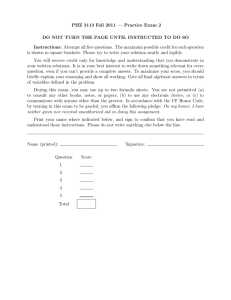Final Exam, May 6
advertisement
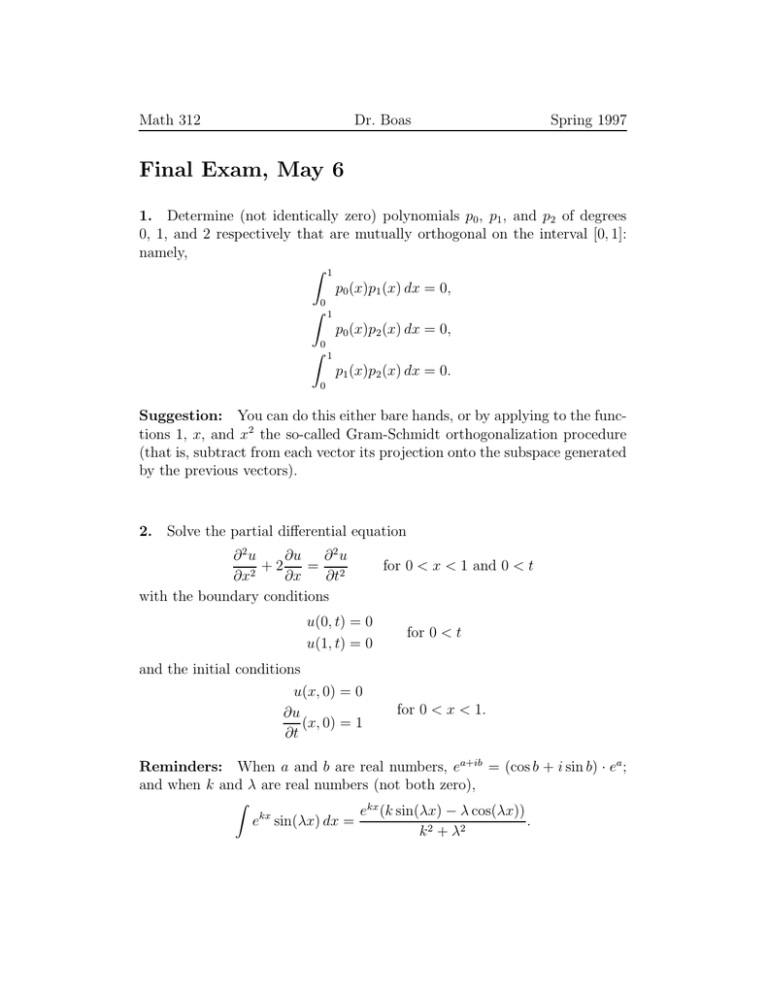
Math 312 Dr. Boas Spring 1997 Final Exam, May 6 1. Determine (not identically zero) polynomials p0 , p1 , and p2 of degrees 0, 1, and 2 respectively that are mutually orthogonal on the interval [0, 1]: namely, Z 1 p0 (x)p1 (x) dx = 0, 0 Z 1 p0 (x)p2 (x) dx = 0, 0 Z 1 p1 (x)p2 (x) dx = 0. 0 Suggestion: You can do this either bare hands, or by applying to the functions 1, x, and x2 the so-called Gram-Schmidt orthogonalization procedure (that is, subtract from each vector its projection onto the subspace generated by the previous vectors). 2. Solve the partial differential equation ∂2u ∂2u ∂u = + 2 ∂x2 ∂x ∂t2 with the boundary conditions u(0, t) = 0 u(1, t) = 0 for 0 < x < 1 and 0 < t for 0 < t and the initial conditions u(x, 0) = 0 ∂u (x, 0) = 1 ∂t for 0 < x < 1. Reminders: When a and b are real numbers, ea+ib = (cos b + i sin b) · ea ; and when k and λ are real numbers (not both zero), Z ekx (k sin(λx) − λ cos(λx)) . ekx sin(λx) dx = k 2 + λ2



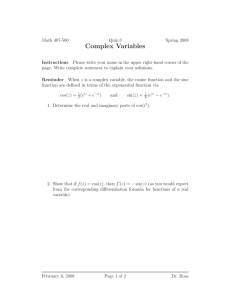
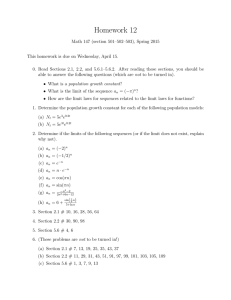
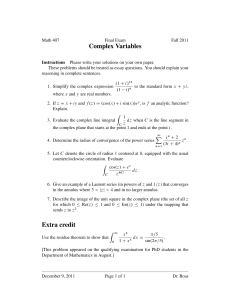
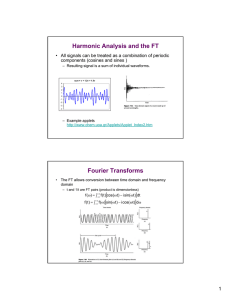
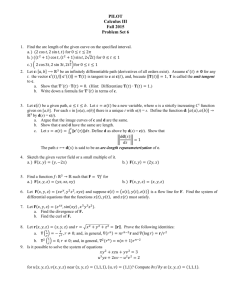
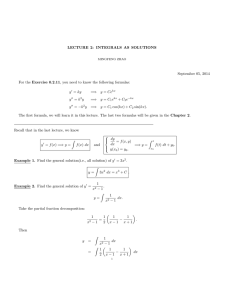
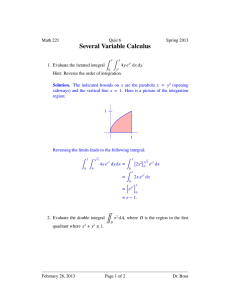
![MA1S12 (Timoney) Tutorial sheet 4b [February 10–14, 2014] Name: Solutions](http://s2.studylib.net/store/data/011008021_1-e1c67c09871645963fde268e502c75e0-300x300.png)
